In this article
View 2 More +It’s not uncommon for cat owners to catch their cats doing crazy things, like chasing their tails or staring wide-eyed into the distance. If you caught your cat standing on their hind legs, you may wonder what alternative universe you tripped into.
No need to worry; you haven’t wandered into another reality. Cats standing on their hind legs is typical when they are looking for attention, affection, or places to explore. They’re likely just trying to get a better position to get what they want.
However, there are times when this behavior is a cause for concern. If your cat is standing on their hind legs frequently or resting their weight on their heels, a medical condition may be responsible. So why do cats stand on their hind legs? In this article, we will discuss three reasons cats do unusual things with their posture and how to spot the signs of each condition.

The 3 Reasons Cats Stand on Their Hind Legs and Have Other Abnormal Postures
1. Diabetic Neuropathy
Cats with diabetes can develop a condition called diabetic neuropathy if their diabetes is not well controlled. Diabetic neuropathy is one of the most common types of neuropathy in cats. It is caused by high levels of blood sugar due to diabetes, eventually leading to nerve damage.
This damage to your cat’s nerves is most evident in the hind limbs, causing your cat to rest their weight on their heels. Signs of the condition include weak muscles, muscular atrophy (deterioration of the muscles), excessive thirst, and frequent urination.
Diabetic neuropathy is not believed to be painful, and it is sometimes reversible with treatment.
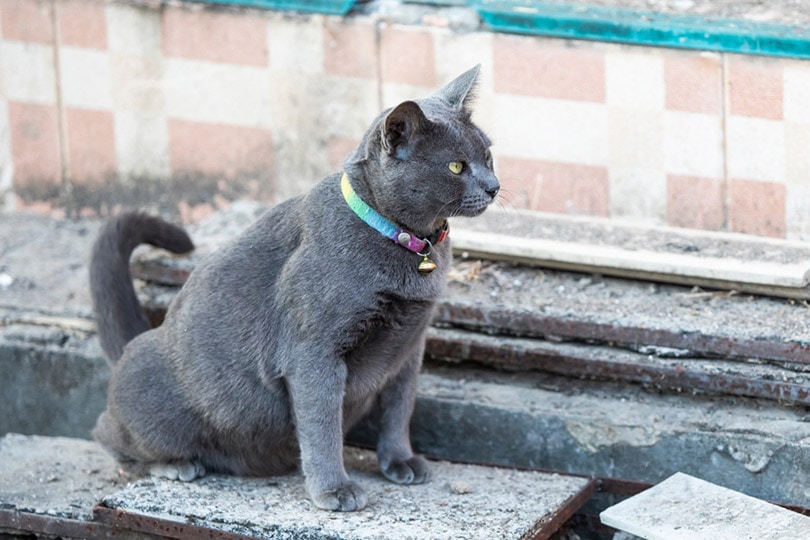
2. Radial Agenesis
Another condition that can cause your cat to stand on their hind limbs is radial agenesis. Radial agenesis, also known as radial hypoplasia, is a condition in which a cat’s front limbs are abnormally twisted.
Cats with radial agenesis rely more heavily on their hind limbs as a result, thus causing them to stand on their back legs. The severity of the condition can vary, and cats can experience partial or complete radial agenesis.
3. Calcaneal Tendon Disorders
The calcaneal tendon is also known as the Achilles tendon. The tendon is responsible for connecting the heel bone to the calf muscle. An injury to the tendon can alter your cat’s movement and stance in the hind legs, as it can no longer support your cat’s weight. This may cause them to rest their weight on their heels. There are two main reasons your cat may suffer from a calcaneal tendon disorder, the first being traumatic injury.
Cats that have endured a severe blow to the hind leg or fallen from a great height can suffer from a complete or partial tendon rupture. The second reason for a calcaneal tendon disorder is degeneration after a long period. Your cat may be running around when their calcaneal tendon suddenly ruptures due to prolonged deterioration.
The cause of this deterioration is unknown. However, there are some common signs you can watch for that point to a calcaneal tendon disorder. Limb lameness and muscular atrophy are the most notable ones.
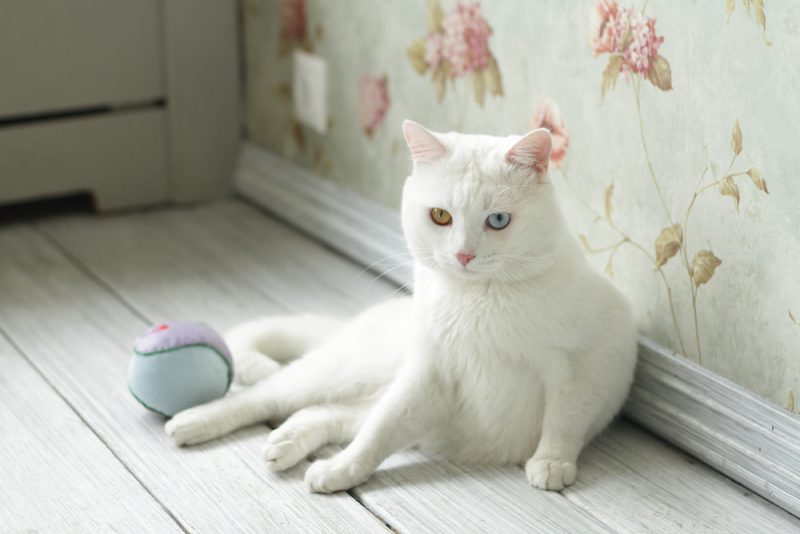

What to Do If You’re Worried About Your Cat’s Behavior
If your cat rests their weight on their heels or constantly walks around on their hind legs, they may have one of the conditions listed above. If that is the case, you should not delay making an appointment with a vet.
Once the vet diagnoses your cat’s issue, they can provide a treatment plan. Following the vet’s treatment plan is the most effective way to return your cat to a good quality of life, so listen to their instructions and do not be afraid to ask questions.
If you need to speak with a vet but can't get to one, head over to PangoVet. It's an online service where you can talk to a vet online and get the advice you need for your pet — all at an affordable price!

How to Tell if Your Cat Is in Pain
Cats aren’t always open books. If your cat is walking around on their hind legs but doesn’t appear to be in pain, that doesn’t mean they’re alright. Cats habitually mask their pain, so watching for changes in behavior is crucial to catching illnesses and injuries when they develop.
- Frequent vocalization, such as yowling, purring, or hissing
- Restlessness and pacing
- Changes in daily routine
- Decreased energy
- Poor grooming habits
- Lack of appetite or thirst
- Changes in sleeping patterns
- Strange facial expressions, such as grimaces
- Irregular postures, like hunching
If you notice any of the signs above, reach out to a vet right away to determine the source of the pain and seek treatment.
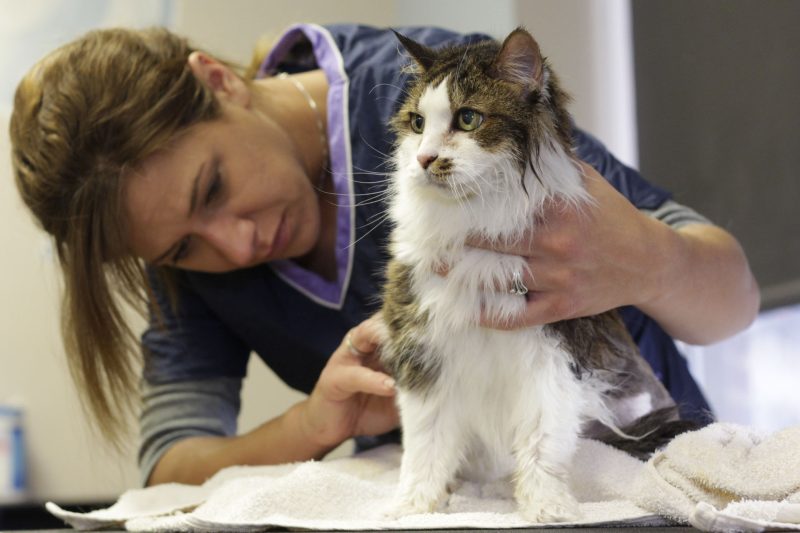

Conclusion
It isn’t necessarily abnormal to see a cat standing on their hind legs. Some cat owners even affectionately call this behavior “meerkating” since their pets resemble the adorable meerkat when they stand on their hind legs.
However, if this posture is constant or your cat appears to be resting their weight on their heels, they may be suffering from a health condition. If that is the case, reach out to a vet. It is especially important if your cat is displaying signs of pain. With proper care, your cat can continue to live a happy, healthy life.
Featured Image Credit: Andriy Blokhin, Shutterstock
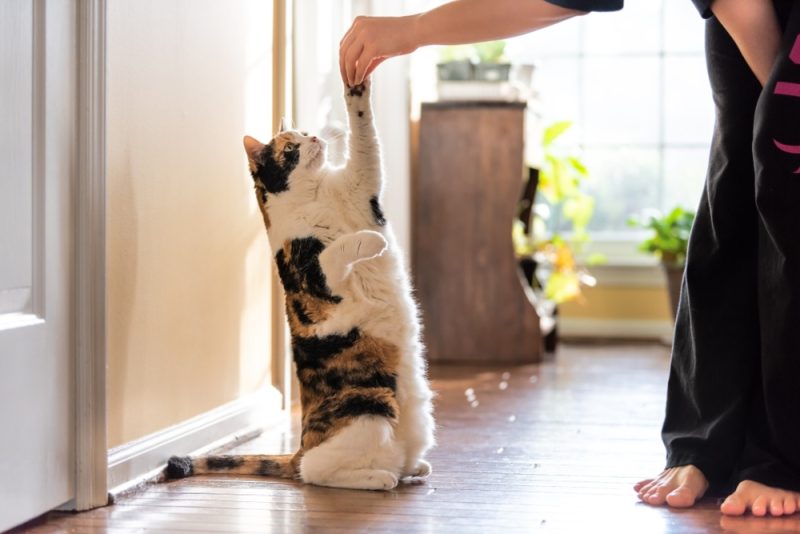


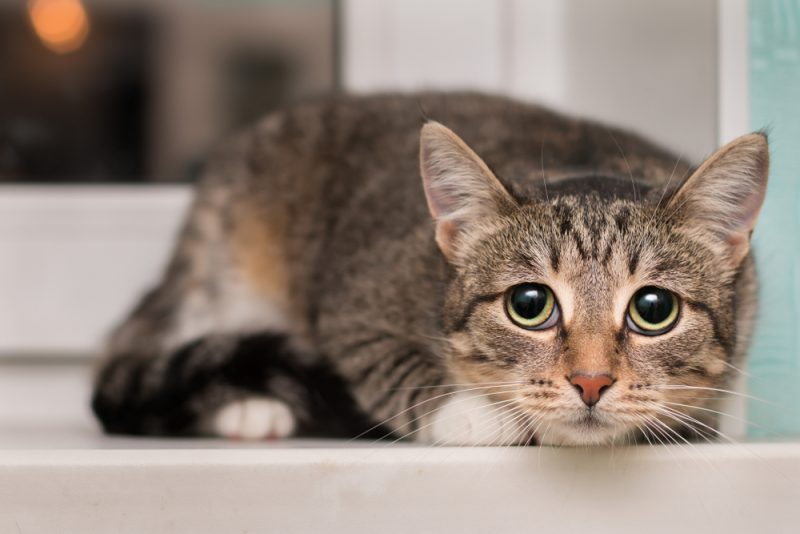



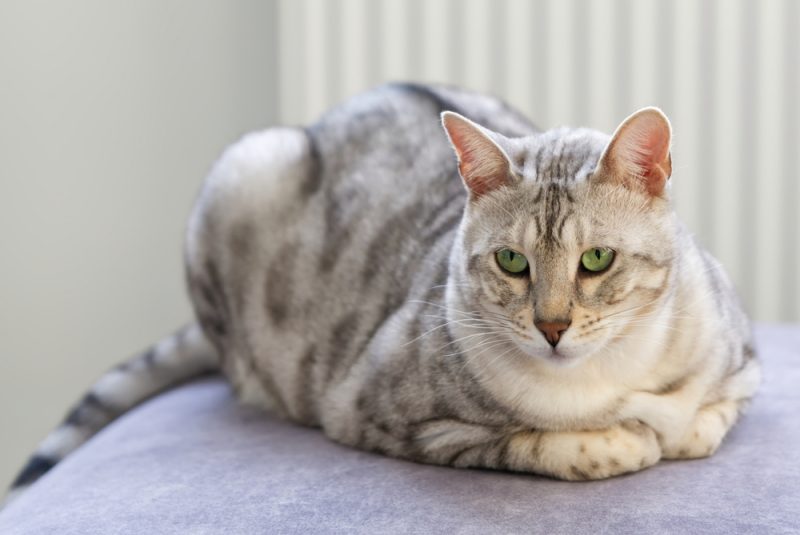
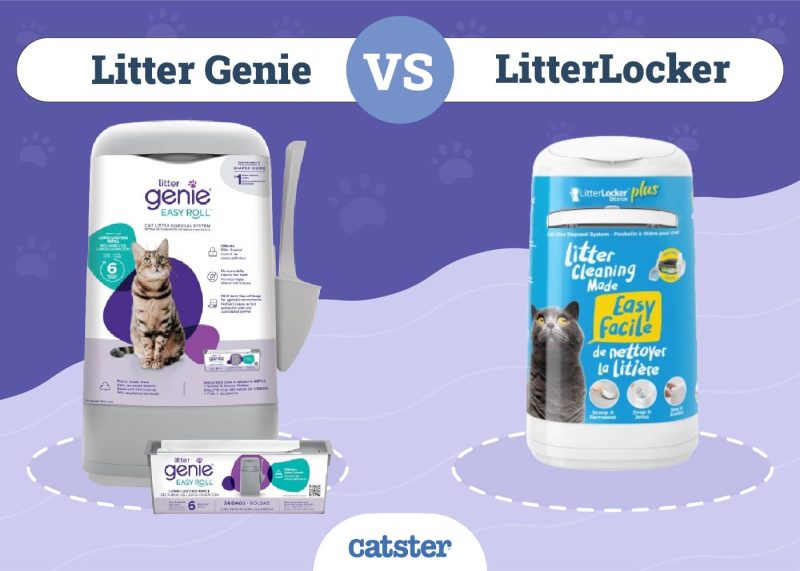
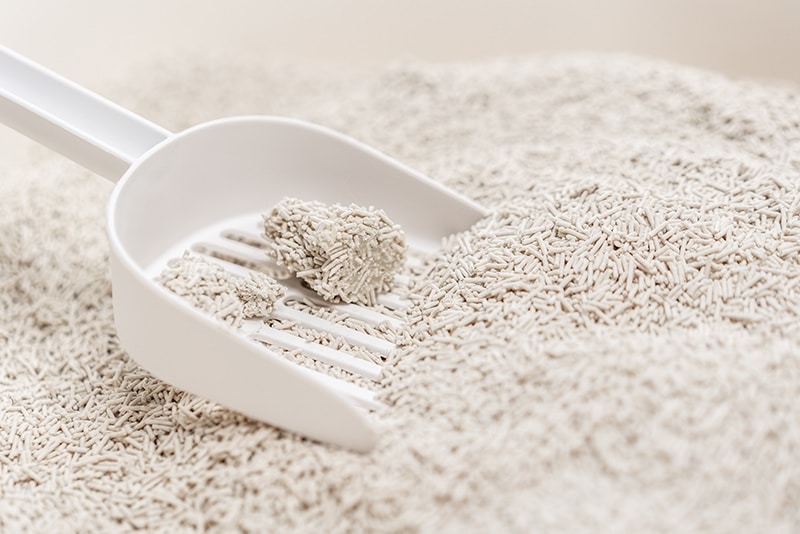

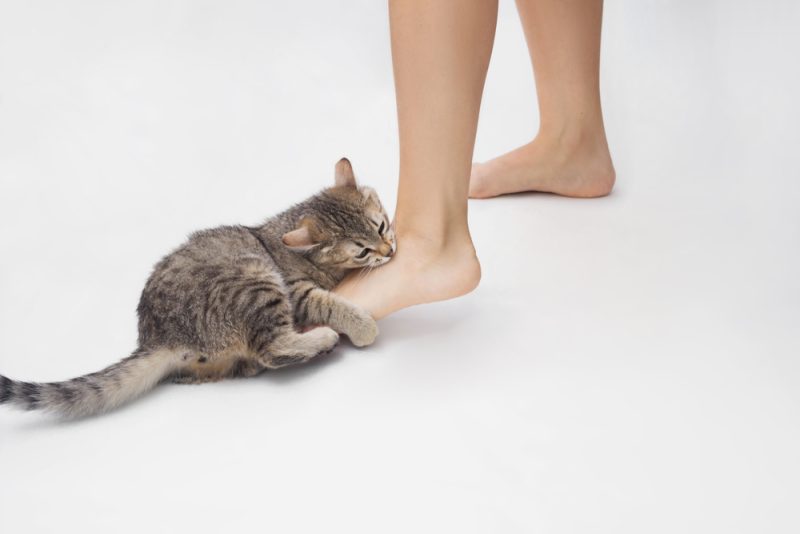
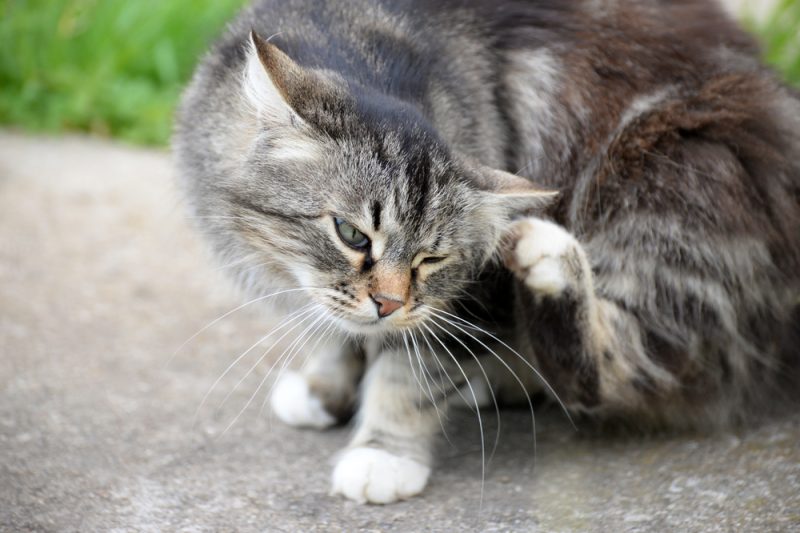
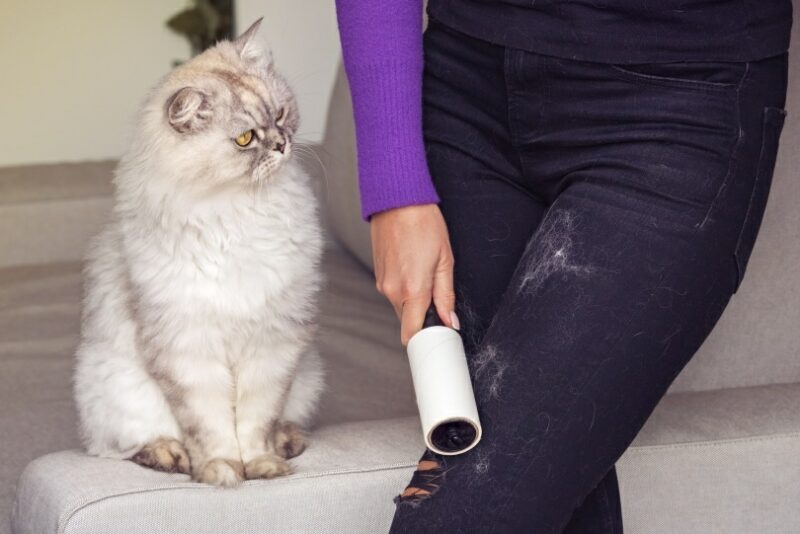
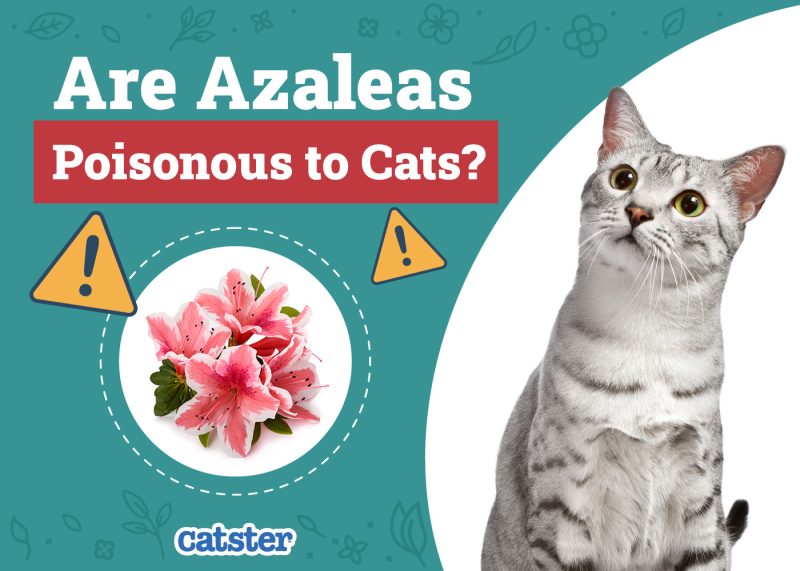

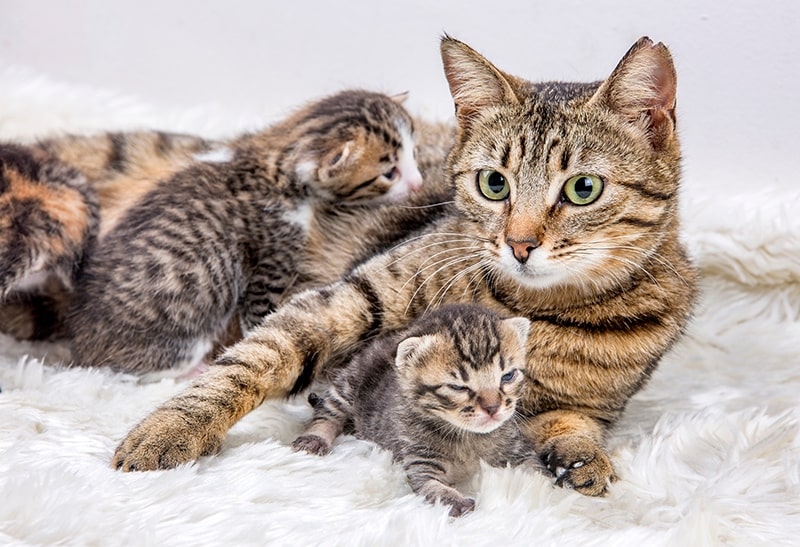
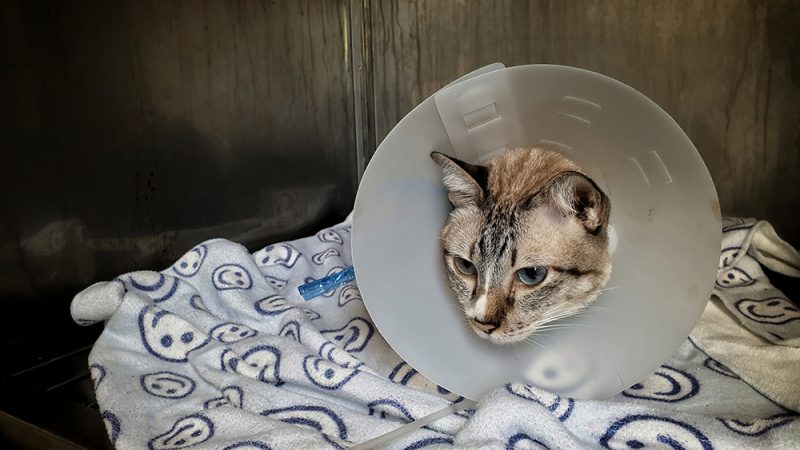



2 Responses
My cat doesn’t stand on her back feet or legs. She stretches her whole body flat on the floor. I never even knew she was that long! lol but then it’s like her bk legs look like the rotation of riding a bicycle? And she makes this strange sound I’ve never heard her do. I’ve also noticed that she’s not eating as much as she was before.
Hello, Martha Bond. Reduced appetite is a warning sign that may indicate a trip to the vet.